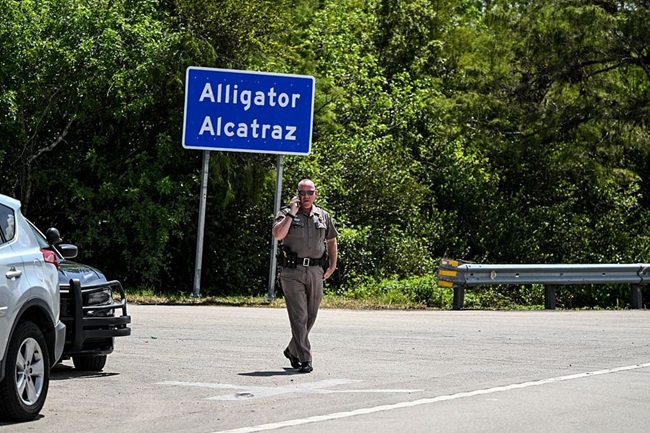By Livia Caputo, Florida Phoenix
A Florida judge Wednesday permanently closed the city of South Miami’s case to determine whether cities must enter into partnerships with Immigration and Customs Enforcement, adding that future attempts would be “futile.”
Jonathan Sjostrom, chief judge for the Second Judicial Circuit in Leon County, sided with Gov. Ron DeSantis and Florida Attorney General James Uthmeier by agreeing to dismiss with prejudice South Miami’s case questioning whether cities and towns must enter into ICE partnerships, called 287(g) agreements.
Although the ruling doesn’t weigh in on whether cities must enter into the partnerships, Sjostrom was clear that South Miami had no ground for a case.
“This City’s lawsuit, at least, is premature,” Sjostrom wrote in the Wednesday afternoon decision. “This is a fairly straightforward case, despite the length and complexity of the [city’s] Complaint. Given the relative simplicity of the actual circumstances alleged, this court concludes that additional attempts to plead would be futile.”
This is only the latest legal win for the state in the immigration sphere. Earlier this month, a federal appellate court reversed a lower court’s decision to shut down the “Alligator Alcatraz” detention center, handing a massive win to DeSantis and Uthmeier. Florida now has two large detention centers in partnership with ICE, “Alligator Alcatraz” and “Deportation Depot,” and is working on opening a “Panhandle Pokey.”
Why Did Miami Sue?
South Miami, under Mayor Javier Fernandez, was the first city to file suit in March against the DeSantis administration to determine whether local governments must enter into 287(g) agreements, which deputize state and local officers as federal immigration authorities. This challenge stemmed from the GOP-dominated Legislature passing a February law requiring counties and sheriffs to enter into these partnerships.
In oral arguments, the state’s lawyers argued that although cities aren’t explicitly required to enter into 287(g) agreements, they’re not allowed to purposely cancel the partnerships once they’ve been enacted. They argue that this constitutes active defiance of Florida’s new law mandating cities use their “best efforts” to combat illegal immigration and qualifies the city as a sanctuary state.
South Miami, meanwhile, accused Uthmeier of politically pressuring cities like Key West and Fort Myers, which had voted to disband 287(g) agreements. They received threatening letters from Uthmeier and reversed course.
Sjostrom — who declined to rule on whether a city receiving Uthmeier’s letter could ask for relief — said South Miami had no ground to cite these letters because it had never received one.
“This court expresses no views as to whether a City that receives a letter … would present a case or controversy sufficient for declaratory relief. But the letter does not create a case or controversy for a City to whom no such letter was directed,” Sjostrom wrote. “Political pressure applied by political actors to other political actors provides no basis for judicial intervention.”
South Miami has yet to enter any of its officials into a 287(g) agreement and, according to Mayor Fernandez, they don’t plan on it either.
“What we’ve learned from [this case] is that as long as we don’t do anything, we’re not in jeopardy,” Fernandez told the Florida Phoenix. “The ball is in the governor’s and attorney general’s court. If they believe that by doing nothing that we’re in violation … then I think we would have further legal standing.”
“In the absence of their action, there’s nothing we’re planning to do other than doing nothing,” he continued. “We’ve gotten the clarity we need.”
Sjostrom granted the state’s request to dismiss the case with prejudice, meaning the matter is permanently closed.


Prediction, “With Predjuice”, won’t mean a thing to to Tallahassee commissioners eager to spend taxpayer money on frivolous suits
Cities shouldn’t be MADE to enter into partnerships with Immigration and Customs Enforcement because they should already KNOW that they are a Law Enforcement and have to help when and if needed. Just like with the FBI and any other Law Enforcement Agency. It is no different then TPD working with FHP or LCSO.